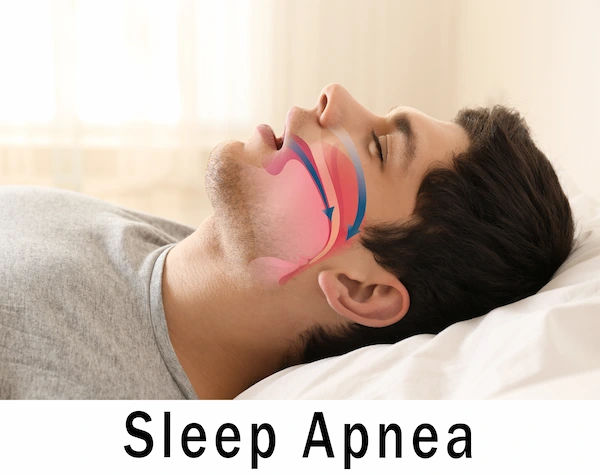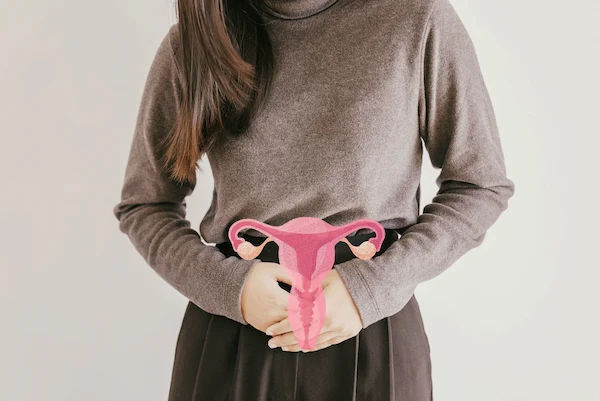Understanding Neonatal Respiratory Distress Syndrome
Learn about Neonatal Respiratory Distress Syndrome, its causes, symptoms, treatment options, and how it affects premature newborns' breathing and overall health.

Written by Dr. J T Hema Pratima
Reviewed by Dr. Dhankecha Mayank Dineshbhai MBBS
Last updated on 7th Aug, 2025

Introduction
Welcoming a newborn into the world is a joyous occasion, but it can also be a time of concern, especially if your baby shows signs of breathing difficulties. One such condition that affects newborns is Neonatal Respiratory Distress Syndrome (NRDS). If your baby has been diagnosed with NRDS or you’re simply looking to learn more, this article will help you understand the condition, its causes, symptoms, and how it can be managed.
What Is Neonatal Respiratory Distress Syndrome (NRDS)?
Neonatal Respiratory Distress Syndrome (NRDS) is a breathing disorder that primarily affects premature babies, particularly those born before 37 weeks of pregnancy. It occurs when a baby’s lungs are not fully developed and lack a substance called surfactant, which helps keep the tiny air sacs in the lungs open. Without enough surfactant, the lungs collapse, making it difficult for the baby to breathe properly.
What Causes NRDS?
The main cause of NRDS is premature birth, as the lungs are one of the last organs to fully develop. Other contributing factors include:
- Low surfactant levels: Surfactant production begins around 24 weeks of pregnancy and increases as the baby grows. Premature babies may not have enough surfactant.
- Genetic factors: Some babies may inherit conditions that affect lung development.
- Maternal diabetes: Babies born to mothers with uncontrolled diabetes may have delayed lung maturity.
- Infections or complications during birth: These can sometimes trigger breathing difficulties.
Signs and Symptoms of NRDS
If your baby has NRDS, you may notice the following symptoms shortly after birth:
- Fast or laboured breathing (more than 60 breaths per minute)
- Grunting sounds while exhaling
- Flaring nostrils (as the baby struggles to take in more air)
- Bluish skin or lips (due to low oxygen levels)
- Retractions (the skin between the ribs or under the ribcage pulls in with each breath)
If you observe any of these signs, seek medical attention immediately.
Consult Top Specialists
How Is NRDS Diagnosed?
Doctors diagnose NRDS through:
1. Physical examination: Checking breathing rate, oxygen levels, and overall condition.
2. Chest X-ray: To see if the lungs appear underdeveloped or collapsed.
3. Blood tests: To measure oxygen and carbon dioxide levels.
4. Echocardiogram: To rule out heart-related breathing problems.
Treatment Options for NRDS
The good news is that NRDS is treatable, and most babies recover with proper medical care. Treatment options include:
1. Surfactant Replacement Therapy
- Doctors administer artificial surfactant directly into the baby’s lungs to help them expand properly.
2. Oxygen Support
- Nasal cannula or CPAP (Continuous Positive Airway Pressure): Provides extra oxygen to keep the lungs open.
- Mechanical ventilator: In severe cases, a machine helps the baby breathe.
3. Nutritional Support
- Premature babies may need IV fluids or special feeding methods until they can breathe and feed normally.
4. Antibiotics (if needed)
- If an infection is suspected, antibiotics may be given.
How Can NRDS Be Prevented?
While not all cases can be prevented, certain steps can reduce the risk:
- Prenatal care: Regular check-ups during pregnancy help monitor the baby’s growth.
- Corticosteroids before birth: If premature delivery is expected, doctors may give steroids to speed up lung development.
- Delaying elective early births: Unless medically necessary, waiting until at least 39 weeks helps the lungs mature.
Long-Term Outlook for Babies with NRDS
Most babies with NRDS recover fully with treatment. However, extremely premature babies may face:
- Bronchopulmonary Dysplasia (BPD): A chronic lung condition requiring long-term care.
- Developmental delays: Some babies may need extra support for growth and learning.
Regular follow-ups with a paediatrician ensure your baby stays healthy.
When to Seek Medical Help?
If your baby shows any signs of breathing trouble after birth, seek emergency care immediately. Early treatment improves outcomes significantly.
Conclusion
Neonatal Respiratory Distress Syndrome can be scary for new parents, but with advances in neonatal care, most babies recover well. If your baby is premature or at risk, staying informed and working closely with your healthcare team can make a big difference.
If you have concerns about your newborn’s breathing or need expert advice, Apollo 24|7 offers consultations with pediatric specialists. You can easily book an appointment or schedule a test through the Apollo 24|7 app or website.
Consult Top Specialists
Consult Top Specialists

Dr. Mohamed Azeem
General Physician/ Internal Medicine Specialist
2 Years • MBBS,MD(Internal Medicine) CCEBDM
Karaikudi
Apollo Hospitals Karaikudi, Karaikudi

Dr. Anand Ravi
General Physician
2 Years • MBBS
Bengaluru
PRESTIGE SHANTHINIKETAN - SOCIETY CLINIC, Bengaluru

Dr Syed Mateen Pasha
General Physician
2 Years • MBBS
Bengaluru
PRESTIGE SHANTHINIKETAN - SOCIETY CLINIC, Bengaluru

Dr. Harshendra Jaiswal
General Physician/ Internal Medicine Specialist
12 Years • MBBS , MD (General medicine)
Kolkata
108 DHANA DHANVANTARI Clinic, Kolkata
(25+ Patients)

Dr. Syed Ismail Ali
General Practitioner
7 Years • MBBS
Hyderabad
Apollo 24|7 Clinic, Hyderabad
Consult Top Specialists

Dr. Mohamed Azeem
General Physician/ Internal Medicine Specialist
2 Years • MBBS,MD(Internal Medicine) CCEBDM
Karaikudi
Apollo Hospitals Karaikudi, Karaikudi

Dr. Anand Ravi
General Physician
2 Years • MBBS
Bengaluru
PRESTIGE SHANTHINIKETAN - SOCIETY CLINIC, Bengaluru

Dr Syed Mateen Pasha
General Physician
2 Years • MBBS
Bengaluru
PRESTIGE SHANTHINIKETAN - SOCIETY CLINIC, Bengaluru

Dr. Harshendra Jaiswal
General Physician/ Internal Medicine Specialist
12 Years • MBBS , MD (General medicine)
Kolkata
108 DHANA DHANVANTARI Clinic, Kolkata
(25+ Patients)

Dr. Syed Ismail Ali
General Practitioner
7 Years • MBBS
Hyderabad
Apollo 24|7 Clinic, Hyderabad




